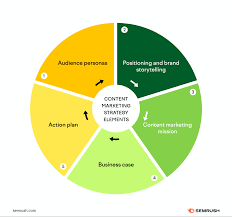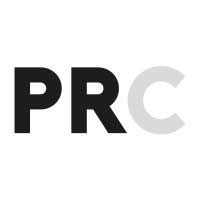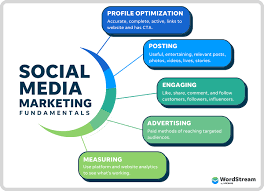The Power of Media Marketing: Reaching Your Audience in the Digital Age
In today’s fast-paced and interconnected world, media marketing has become an essential tool for businesses to effectively reach their target audience. With the rise of digital platforms and social media, the way we consume and interact with media has drastically changed. As a result, businesses must adapt their marketing strategies to leverage these new opportunities.
Media marketing encompasses various channels, including television, radio, print publications, online platforms, and social media networks. It allows businesses to promote their products or services through carefully crafted messages that resonate with their target audience.
One of the key advantages of media marketing is its ability to reach a large number of people simultaneously. Television and radio advertisements have long been popular choices for businesses looking to increase brand awareness on a mass scale. However, with the advent of digital platforms, businesses now have access to a wider range of options that can be tailored to specific demographics.
Social media platforms such as Facebook, Instagram, Twitter, and LinkedIn have revolutionized the way businesses connect with their audience. These platforms offer targeted advertising options that allow businesses to reach users based on their interests, demographics, and online behavior. This level of precision targeting ensures that your message reaches the right people at the right time.
Moreover, media marketing provides an opportunity for businesses to engage with their audience on a more personal level. Through interactive content such as videos, live streams, and user-generated campaigns, brands can foster meaningful connections with consumers. This engagement not only strengthens brand loyalty but also encourages users to become brand advocates who share positive experiences with others.
Another significant advantage of media marketing is its measurability. Unlike traditional forms of advertising where it can be challenging to gauge effectiveness accurately, digital platforms provide detailed analytics that allow businesses to track campaign performance in real-time. This data-driven approach enables marketers to optimize their strategies based on insights gathered from user engagement metrics and conversion rates.
However, it’s important to note that media marketing requires careful planning and execution. With the vast amount of content available online, businesses must develop compelling and unique messages that capture the attention of their target audience. It’s essential to create content that is relevant, informative, and visually appealing to stand out from the competition.
Furthermore, businesses must stay up-to-date with the ever-changing landscape of media marketing. Digital platforms constantly evolve, introducing new features and algorithms that can impact campaign performance. Therefore, it’s crucial to stay informed about industry trends and adapt strategies accordingly to remain competitive.
In conclusion, media marketing is a powerful tool that allows businesses to effectively reach their target audience in the digital age. By leveraging various channels and platforms, businesses can engage with consumers on a personal level while achieving measurable results. However, success in media marketing requires a strategic approach, compelling content creation, and continuous adaptation to stay ahead of the curve. Embracing this dynamic landscape will enable businesses to connect with their audience like never before and drive growth in today’s digital world.
8 Advantages of Media Marketing: Boosting Reach, Cost-Effectiveness, Enhancing Brand Awareness, Measurable Outcomes, Targeting Specific Audiences, Personalized Content, Heightened Engagement Rates, Maximizing ROI
- Increased Reach
- Cost-Effective
- Improved Brand Awareness
- Measurable Results
- Targeted Audience
- Personalised Content
- Increased Engagement Rates
- Increased ROI (Return On Investment)
Challenges of Media Marketing: 5 Cons to Consider in the UK
- It can be expensive to create and implement a successful media marketing campaign.
- It can be difficult to measure the effectiveness of media marketing campaigns.
- Media marketing campaigns can easily become outdated and irrelevant if not regularly updated.
- Media marketing campaigns may require constant attention in order to remain effective, which can be time consuming and costly for businesses.
- Media marketing campaigns may not reach the desired target audience if it is not tailored correctly for them.
Increased Reach
Increased Reach: Expanding Your Audience through Media Marketing
In the realm of marketing, one of the significant advantages of media marketing is its ability to reach a larger audience. Whether through traditional channels like television and radio or digital platforms such as social media and online publications, media marketing allows businesses to extend their brand’s visibility and connect with a broader demographic.
One of the key benefits of media marketing is its potential for mass exposure. Television and radio advertisements have long been trusted methods for businesses to broadcast their messages to a wide range of viewers and listeners. By strategically placing advertisements during popular shows or prime time slots, businesses can capture the attention of a vast audience, increasing brand awareness and recognition.
However, with the rise of digital platforms, media marketing has become even more powerful in terms of reach. Social media networks like Facebook, Instagram, Twitter, and LinkedIn offer targeted advertising options that enable businesses to tailor their messages to specific demographics. This level of precision targeting ensures that your content reaches individuals who are more likely to be interested in your products or services.
By leveraging user data such as age, location, interests, and online behavior, businesses can create highly targeted campaigns that resonate with their intended audience. This not only increases the chances of capturing their attention but also enhances the likelihood of conversion and engagement.
Moreover, media marketing allows businesses to tap into niche markets that may have been challenging to reach through traditional means. Online publications or industry-specific websites provide opportunities for targeted advertising that can effectively engage with specific demographics or interest groups. This focused approach ensures that your message reaches those who are most likely to be interested in what you have to offer.
Another advantage is that media marketing provides opportunities for businesses to explore different formats and mediums. Visual content such as videos or infographics can be shared across various platforms, allowing for greater exposure and engagement. Additionally, interactive elements like quizzes or polls can encourage active participation from users, fostering a deeper connection with your brand.
It is important to note that while media marketing offers increased reach, it is crucial to have a well-defined target audience and clear marketing objectives. Understanding your audience’s demographics, preferences, and behaviours will enable you to craft messages that resonate with them effectively. By aligning your marketing efforts with the interests and needs of your target demographic, you can maximise the impact of your media campaigns.
In conclusion, media marketing’s ability to reach a larger audience is a significant advantage for businesses seeking to expand their brand’s visibility. Whether through traditional channels or digital platforms, businesses can leverage media marketing to connect with a broader demographic and target specific audiences. By tailoring messages to resonate with the intended audience, businesses can increase brand awareness, engagement, and ultimately drive growth in today’s competitive marketplace.
Cost-Effective
Cost-Effective: Unlocking Affordable Advertising Opportunities with Media Marketing
In the realm of advertising, cost-effectiveness is a crucial factor that businesses consider when deciding on their marketing strategies. Media marketing shines in this regard, offering a cost-effective solution that can stretch your advertising budget further compared to traditional forms such as print or television.
One of the key advantages of media marketing is its ability to reach a large audience at a fraction of the cost. Traditional print advertisements often come with hefty price tags, especially for prime placements in popular publications. Similarly, television commercials during peak viewing hours can be prohibitively expensive for many businesses.
Media marketing, on the other hand, provides affordable alternatives that don’t compromise on reach or effectiveness. Digital platforms and social media networks offer targeted advertising options at competitive prices. These platforms allow you to tailor your campaigns based on specific demographics, interests, and online behaviors, ensuring that your message reaches the right audience without unnecessary expenses.
The flexibility and scalability of media marketing also contribute to its cost-effectiveness. Unlike print or television advertisements that require significant upfront investments for production and distribution, digital platforms offer more agile solutions. With just a few clicks, you can create and launch campaigns with varying budgets to test different strategies and optimize performance based on real-time data.
Moreover, media marketing provides measurable results that enable you to track the return on your investment accurately. Digital platforms offer robust analytics tools that provide valuable insights into campaign performance. You can monitor key metrics such as impressions, clicks, conversions, and engagement rates in real-time. This data-driven approach allows you to allocate your advertising budget more efficiently by focusing on channels and campaigns that deliver the best results.
Additionally, media marketing offers opportunities for organic growth through user-generated content and viral campaigns. By creating compelling content that resonates with your target audience, you can encourage them to share it with their networks organically. This word-of-mouth promotion not only generates additional exposure but also reduces the need for additional advertising expenses.
In conclusion, media marketing stands out as a cost-effective advertising solution in today’s digital landscape. With affordable options and precise targeting capabilities, businesses can reach their desired audience without breaking the bank. The flexibility and scalability of digital platforms further enhance cost-effectiveness by allowing businesses to optimize campaigns based on real-time data. Embracing media marketing opens up a world of affordable advertising opportunities that can help businesses maximize their reach and achieve their marketing goals efficiently.
Improved Brand Awareness
Improved Brand Awareness: Media Marketing’s Impact on Building Brand Recognition and Loyalty
In today’s competitive business landscape, building brand awareness is crucial for success. Media marketing offers a powerful avenue to achieve this goal by reaching potential customers and establishing a strong brand presence. Let’s explore how media marketing can help businesses improve their brand awareness, recognition, and loyalty.
Firstly, media marketing allows businesses to showcase their brand to a wide audience. Through television, radio, print publications, online platforms, and social media networks, companies can effectively communicate their brand message to potential customers. Consistent exposure across these channels helps create familiarity with the brand, making it more recognizable and memorable.
Moreover, media marketing enables businesses to target specific demographics or interest groups. By tailoring messages to resonate with the intended audience, brands can establish a deeper connection with potential customers. This targeted approach ensures that the right people are exposed to the brand’s values, products, or services, increasing the likelihood of conversion and long-term loyalty.
Additionally, media marketing provides opportunities for storytelling and creating emotional connections. Through compelling narratives or visually engaging content, businesses can evoke emotions that resonate with consumers. These emotional connections foster brand loyalty as customers feel a sense of affinity towards the brand and are more likely to choose it over competitors.
Furthermore, media marketing allows brands to leverage influencers or celebrities who align with their values or target audience. Collaborating with influential individuals can significantly enhance brand awareness as their followers trust their recommendations and opinions. This association helps build credibility and increases the likelihood of attracting new customers who may have been previously unaware of the brand.
Media marketing also offers opportunities for interactive engagement with potential customers. Social media platforms enable brands to initiate conversations through comments sections or direct messaging features. By actively engaging with users’ feedback or inquiries in a timely manner, businesses demonstrate their commitment to customer satisfaction while further strengthening brand loyalty.
Lastly, media marketing provides measurable results that help businesses gauge the effectiveness of their brand awareness efforts. Through analytics and performance metrics, companies can track engagement levels, reach, and conversions. This data-driven approach allows for continuous improvement and optimization of marketing strategies to maximize brand exposure.
In conclusion, media marketing plays a vital role in improving brand awareness by reaching potential customers and establishing a strong brand presence. Through targeted messaging, emotional connections, influencer collaborations, interactive engagement, and measurable results, businesses can effectively build recognition and loyalty among their audience. By harnessing the power of media marketing, companies can elevate their brand to new heights in today’s competitive marketplace.
Measurable Results
Measurable Results: The Key to Effective Media Marketing
One of the significant advantages of media marketing is the ability to measure and track campaign performance. In the digital age, where data is readily available, this feature provides marketers with valuable insights that can shape their strategies and drive success.
Unlike traditional forms of advertising, media marketing offers detailed analytics that allow businesses to measure the impact of their campaigns in real-time. By tracking key performance indicators (KPIs) such as reach, engagement, click-through rates, conversions, and return on investment (ROI), marketers can gain a comprehensive understanding of how their messages are resonating with their target audience.
The ability to measure results is crucial for several reasons. Firstly, it enables marketers to identify what works and what doesn’t. By analyzing data-driven metrics, businesses can determine which aspects of their campaigns are generating positive outcomes and which ones need improvement. This valuable information allows marketers to make informed decisions about allocating resources and adjusting strategies accordingly.
Moreover, measuring campaign performance helps businesses set realistic goals and benchmarks. By establishing clear objectives at the outset and regularly monitoring progress, marketers can ensure that they are on track to achieve desired outcomes. This process also enables them to identify any potential issues or bottlenecks early on and take corrective action promptly.
Additionally, tracking results provides insights into audience behavior and preferences. By analyzing user engagement metrics such as click-through rates, time spent on a website or landing page, or social media interactions, marketers can gain a deeper understanding of how their target audience interacts with their content. This knowledge allows for more personalized and targeted messaging in future campaigns.
Furthermore, measurable results allow for effective budget allocation. By assessing the ROI of different media channels or advertising formats, businesses can optimize their marketing spend by focusing resources on strategies that deliver the best returns. This data-driven approach ensures that every pound spent is allocated strategically to maximize impact.
It’s important to note that measuring results in media marketing is an ongoing process. As digital platforms and consumer behavior continue to evolve, so must the metrics and analytics used to evaluate performance. Staying up-to-date with industry trends and adapting measurement strategies accordingly is essential for long-term success.
In conclusion, the ability to measure results is a crucial pro of media marketing. By tracking campaign performance, marketers can gain valuable insights into their audience’s behavior, adjust strategies based on data-driven metrics, set realistic goals, and optimize their marketing spend. This data-driven approach ensures that businesses can make informed decisions and continuously improve their campaigns for maximum impact and success in the dynamic world of media marketing.
Targeted Audience
Targeted Audience: Enhancing Engagement through Media Marketing
In the realm of marketing, reaching the right audience is paramount to success. This is where media marketing shines with its ability to target specific audiences based on a variety of factors such as interests, behaviours, locations, and more. By leveraging this pro of media marketing, businesses can achieve better engagement with potential customers and maximize their marketing efforts.
Gone are the days of casting a wide net and hoping for the best. With media marketing, businesses can now tailor their messages to resonate with specific demographics that are most likely to be interested in their products or services. This level of precision targeting ensures that resources are directed towards those who are most likely to convert into loyal customers.
Through digital platforms and social media networks, businesses can access a wealth of data about their target audience. This data includes information on user preferences, online behaviour patterns, and demographic profiles. Armed with these insights, businesses can create highly targeted campaigns that deliver relevant content directly to the intended audience.
For instance, imagine a fashion retailer looking to promote their latest collection. Through media marketing channels like Facebook or Instagram, they can specifically target users who have shown an interest in fashion-related content or have previously engaged with similar brands. By directing their message towards this niche audience segment, they increase the likelihood of capturing attention and driving conversions.
This targeted approach also allows businesses to craft personalised messages that resonate with individual consumers on a deeper level. By understanding the interests and behaviours of their audience, companies can create content that speaks directly to their needs and desires. This results in better engagement as consumers feel understood and valued by the brand.
Moreover, targeting specific locations is another powerful aspect of media marketing. Local businesses can focus their efforts on reaching individuals within a specific geographic area who are more likely to visit their physical store or avail themselves of local services. By tailoring messages according to local interests or events, businesses can establish stronger connections with their community and foster a sense of loyalty.
The benefits of targeting a specific audience through media marketing extend beyond initial engagement. By focusing on individuals who are genuinely interested in what a business has to offer, companies can build long-term relationships with loyal customers. These customers are more likely to become brand advocates, spreading positive word-of-mouth and attracting new potential customers through their recommendations.
In conclusion, the ability to target specific audiences is a significant advantage of media marketing. By leveraging this pro, businesses can enhance engagement with potential customers and increase the effectiveness of their marketing efforts. Through tailored messaging that resonates with individual interests, behaviours, and locations, companies can forge lasting connections that drive growth and success in today’s competitive marketplace.
Personalised Content
Personalised Content: Enhancing Engagement through Media Marketing
In the realm of media marketing, one notable advantage is the ability for businesses to create personalised content that resonates with their target audience. This tailored approach increases the chances of engaging with consumers and forging stronger connections.
Gone are the days of generic, one-size-fits-all marketing messages. With media marketing, businesses have the opportunity to craft content that speaks directly to their intended audience. By understanding the demographics, interests, and preferences of their target market, companies can create messages that are relevant and meaningful.
Personalisation in media marketing goes beyond simply addressing someone by their name. It involves understanding what motivates and captivates individuals, allowing businesses to deliver content that piques their interest. Whether it’s through targeted social media ads or personalised email campaigns, this approach enables brands to cut through the noise and capture attention.
When consumers encounter personalised content that aligns with their needs or desires, they are more likely to engage with it. They feel understood and valued by the brand, fostering a sense of connection and loyalty. This engagement can manifest in various ways, such as likes, comments, shares, or even conversions into sales or leads.
Moreover, personalised content helps businesses stand out from competitors who may still rely on generic messaging. By tailoring content specifically for their target audience’s preferences and pain points, brands can differentiate themselves and position themselves as industry leaders. This approach not only boosts engagement but also enhances brand perception and credibility.
Media marketing provides a range of tools and platforms for delivering personalised content effectively. Social media platforms offer advanced targeting options based on demographics, interests, behaviors, and even past interactions with a brand’s content. Email marketing allows businesses to segment their subscribers based on various criteria and send tailored messages accordingly.
However, it is important for businesses to strike a balance when personalising content. While personalisation improves engagement rates, excessive personalisation can come across as intrusive or creepy. Respecting privacy and ensuring that personalisation efforts are transparent and relevant is key to maintaining trust with consumers.
In conclusion, personalised content is a powerful pro of media marketing. By tailoring messages to the specific needs and preferences of their target audience, businesses can increase engagement and foster stronger connections. This approach allows brands to cut through the noise, differentiate themselves from competitors, and build lasting relationships with their customers. With the right strategies and platforms, media marketing enables businesses to deliver content that truly resonates in today’s digital landscape.
Increased Engagement Rates
Increased Engagement Rates: Captivating Your Audience with Relevant Content
In the realm of media marketing, one of the most significant advantages is the potential to achieve increased engagement rates. By crafting compelling and relevant content that resonates with an audience’s interests and needs, businesses can effectively capture their attention and encourage active participation.
In today’s digital age, consumers are constantly bombarded with an overwhelming amount of information. To stand out amidst the noise, businesses must create content that not only grabs attention but also provides value to their target audience. By understanding their customers’ preferences, pain points, and aspirations, businesses can tailor their media campaigns to address these specific needs.
When businesses succeed in delivering content that aligns with their audience’s interests, engagement rates soar. Whether it’s through thought-provoking articles, captivating videos, or interactive social media posts, relevant content has the power to captivate and inspire consumers to take action.
By actively engaging with a brand’s content, consumers become more invested in the brand itself. They are more likely to share their experiences with others, leave comments or reviews, and even make purchases. This increased level of engagement not only enhances brand loyalty but also generates valuable word-of-mouth marketing.
Moreover, when businesses create content that resonates with their audience, it fosters a sense of connection and trust. Consumers feel understood and valued when they encounter content that speaks directly to them. This emotional connection builds a solid foundation for long-term relationships between brands and customers.
Another advantage of increased engagement rates is the opportunity for businesses to gather valuable insights from their audience. Through comments, feedback forms, or surveys embedded within media campaigns, businesses can gain a deeper understanding of consumer preferences and opinions. This feedback loop enables brands to refine their strategies continuously and deliver even more relevant content in the future.
To harness the power of increased engagement rates through media marketing effectively requires a deep understanding of your target audience. Conducting thorough market research, analyzing consumer behaviour, and staying informed about industry trends are crucial steps in creating content that resonates.
In conclusion, increased engagement rates achieved through media marketing can be a game-changer for businesses. By crafting relevant and captivating content, brands have the opportunity to connect with their audience on a deeper level. This connection leads to higher levels of engagement, brand loyalty, and valuable insights that can drive future success. So, embrace the power of relevant content and watch as your audience actively engages with your brand or products/services in exciting new ways.
Increased ROI (Return On Investment)
Increased ROI (Return On Investment): Maximizing Returns with Media Marketing
In the realm of marketing, achieving a high return on investment (ROI) is a fundamental goal for businesses. Media marketing presents a significant advantage in this regard, offering businesses the opportunity to generate greater returns compared to other forms of advertising. By incorporating media campaigns into their overall marketing strategy, businesses can make the most of their resources and drive impressive results.
One key aspect that sets media marketing apart is its cost-effectiveness. Traditional advertising methods such as television or print can be expensive, requiring substantial investments that may not always yield the desired outcomes. In contrast, media campaigns offer a more affordable alternative without compromising reach and impact.
Digital platforms and social media networks have revolutionized how businesses connect with their target audience. These channels provide cost-effective options for reaching a vast number of potential customers. With precise targeting capabilities, businesses can ensure that their message reaches the right individuals at the right time, maximizing the chances of conversion and boosting ROI.
Moreover, digital platforms allow for flexibility in budget allocation. Unlike traditional advertising methods where fixed costs are incurred regardless of performance, media marketing enables businesses to adjust spending based on real-time insights and campaign performance data. This agility allows marketers to optimize their strategies continuously, allocating resources where they prove most effective and generating higher returns on investment.
Another advantage lies in the measurability of media marketing efforts. Digital platforms provide detailed analytics and metrics that allow businesses to track campaign performance accurately. Marketers can monitor key performance indicators such as click-through rates, conversions, engagement levels, and more. This data-driven approach enables them to assess the effectiveness of their campaigns in real-time and make informed decisions to maximize ROI.
Additionally, media marketing offers opportunities for ongoing optimization through A/B testing and experimentation. Businesses can test different variations of content or ad formats to identify which ones resonate best with their target audience. By analyzing data from these tests, marketers can refine their strategies, ensuring that their resources are invested in the most impactful and cost-effective approaches.
In conclusion, media marketing presents a compelling pro: increased ROI. By embracing digital platforms and incorporating media campaigns into their marketing strategies, businesses can achieve greater returns on their investments. The cost-effectiveness of media marketing, combined with precise targeting capabilities, allows for efficient resource allocation and improved performance. Furthermore, the measurability and optimization opportunities provided by digital platforms empower businesses to continuously refine their strategies and maximize ROI. Embracing media marketing as part of an overall marketing strategy can lead to impressive results, helping businesses thrive in today’s competitive landscape while making the most of their resources.
Navigating the Costs of Media Marketing: Overcoming the Expense Barrier
While media marketing offers numerous benefits, it is important to acknowledge one significant challenge: the cost associated with creating and implementing a successful campaign. Businesses often face financial constraints when venturing into media marketing, as it requires careful budgeting and strategic planning to maximize results while minimizing expenses.
One of the primary reasons media marketing can be expensive is the need for high-quality content production. In today’s visually-driven digital landscape, businesses must invest in creating compelling videos, graphics, and written content that captivate their audience. This involves hiring professional videographers, photographers, graphic designers, copywriters, or even outsourcing these services to agencies with expertise in content creation. The costs associated with producing engaging content that stands out from the competition can quickly add up.
Additionally, advertising costs on various platforms can contribute to the expense of media marketing campaigns. Platforms such as television, radio, print publications, and online networks often charge fees for ad placements. The pricing structure may vary depending on factors such as time slots, ad duration or size, target audience reach, and platform popularity. As businesses aim to increase visibility and reach a wider audience through these channels, they must allocate a significant portion of their budget towards advertising expenses.
Furthermore, digital platforms offer targeted advertising options that allow businesses to reach specific demographics or user segments. While this level of precision targeting can yield excellent results by reaching the right audience at the right time, it often comes at a higher cost compared to broader advertising approaches. The more specific and niche-focused a campaign becomes in terms of targeting criteria and desired outcomes, the higher the cost may be.
However daunting these expenses may seem initially, it is crucial not to view them as insurmountable barriers. Instead, businesses can adopt strategies to optimize their resources while achieving desired outcomes:
- Set clear objectives: Define specific goals for your media marketing campaign from the outset. By having a clear understanding of what you want to achieve, you can allocate your budget more effectively and focus on the areas that will yield the highest returns.
- Research and plan: Thoroughly research different media platforms, their pricing structures, and potential ROI before committing to any specific advertising channels. This will help you make informed decisions and choose the platforms that align with your target audience and budget.
- Test and measure: Start with smaller-scale campaigns to test the effectiveness of different strategies and platforms. Monitor key performance indicators (KPIs) closely, such as engagement rates, conversion rates, or return on ad spend (ROAS). Based on the results, refine your approach and invest in areas that show promising outcomes.
- Explore cost-effective alternatives: Consider leveraging organic reach through social media marketing or content marketing strategies. These approaches can be relatively cost-effective compared to paid advertising while still delivering impactful results.
- Collaborate strategically: Seek partnerships or collaborations with complementary businesses or influencers who share your target audience. By pooling resources or leveraging existing audiences, you can expand your reach without solely relying on paid advertising.
By adopting these approaches and carefully managing expenses, businesses can overcome the expense barrier associated with media marketing. While it may require initial investment, a well-planned and executed campaign can yield significant returns in terms of brand visibility, customer engagement, and ultimately business growth.
Navigating the Challenges: Measuring the Effectiveness of Media Marketing Campaigns
In the ever-evolving landscape of media marketing, businesses face a significant challenge: measuring the effectiveness of their campaigns. While media marketing offers numerous advantages, one con that marketers often encounter is the difficulty in accurately gauging the impact and return on investment (ROI) of their efforts.
Unlike traditional forms of advertising where it can be relatively straightforward to measure results, media marketing campaigns present unique obstacles. The vastness and complexity of digital platforms, coupled with constantly evolving algorithms and user behaviors, make it challenging to attribute specific outcomes directly to a particular campaign.
One of the primary reasons for this difficulty lies in the fragmented nature of media consumption. People now engage with various devices and channels simultaneously, making it harder to track their journey from exposure to conversion. With users seamlessly switching between platforms and devices, it becomes more challenging to determine which touchpoints contributed most significantly to a desired action.
Furthermore, metrics provided by digital platforms themselves can be misleading or lack context. While platforms offer analytics on impressions, clicks, likes, shares, and other engagement metrics, these numbers alone do not provide a comprehensive view of campaign effectiveness. For example, high engagement does not always translate into actual conversions or sales.
Another factor that adds complexity is the time delay between exposure and action. In many cases, consumers may be exposed to an advertisement but take time before making a purchase decision or taking any measurable action. This delay makes it difficult to attribute specific actions solely to a single media marketing campaign.
Moreover, measuring the impact of offline conversions resulting from online campaigns poses another challenge. Tracking how online advertisements influence offline purchases requires sophisticated tracking mechanisms such as unique codes or customer surveys. Implementing these methods can be resource-intensive and may not always yield precise data.
Despite these challenges, there are strategies that businesses can employ to overcome the difficulty in measuring media marketing campaign effectiveness. Firstly, implementing robust tracking systems and attribution models can provide a more accurate understanding of the customer journey. By assigning value to different touchpoints and analyzing data from multiple sources, businesses can gain insights into the overall impact of their campaigns.
Additionally, establishing clear campaign objectives and key performance indicators (KPIs) from the outset is crucial. Defining specific goals, whether it be brand awareness, lead generation, or sales, allows businesses to focus their measurement efforts on relevant metrics. This targeted approach enables marketers to assess campaign effectiveness based on desired outcomes rather than relying solely on surface-level engagement metrics.
Lastly, leveraging technology and marketing analytics tools can help businesses gain deeper insights into campaign performance. Advanced analytics platforms offer features such as cross-channel tracking, conversion attribution modeling, and real-time data analysis. These tools provide a more holistic view of campaign effectiveness and enable marketers to make data-driven decisions for optimization.
In conclusion, while measuring the effectiveness of media marketing campaigns presents challenges, it is not an insurmountable obstacle. By implementing comprehensive tracking systems, setting clear objectives and KPIs, and utilizing advanced analytics tools, businesses can gain valuable insights into the impact of their efforts. Though it may require additional resources and strategic planning, overcoming this con allows marketers to refine their strategies and maximize the return on their media marketing investments.
The Pitfall of Media Marketing: The Risk of Becoming Outdated and Irrelevant
In the fast-paced world of media marketing, staying relevant is paramount. While media marketing offers numerous benefits, it also poses a significant challenge – campaigns can quickly become outdated and irrelevant if not regularly updated.
One of the key reasons behind this con is the ever-evolving nature of digital platforms and consumer trends. What may be popular today could be passé tomorrow. Social media algorithms change, new platforms emerge, and consumer preferences shift rapidly. This means that what worked for a campaign yesterday may not yield the same results today.
To avoid falling into the trap of irrelevance, businesses must stay on top of industry trends and adapt their marketing strategies accordingly. Regularly reviewing and updating campaigns is essential to ensure that they remain fresh, engaging, and aligned with current market dynamics.
Another factor contributing to campaign obsolescence is the saturation of content in digital spaces. With an overwhelming amount of information available to consumers at any given moment, capturing attention has become increasingly challenging. A campaign that was once eye-catching may blend into the background noise over time.
To combat this issue, businesses must focus on creating unique and compelling content that stands out from the crowd. Regularly refreshing visuals, messaging, and creative elements can help maintain audience interest and prevent campaigns from becoming stale.
Moreover, consumer preferences continually evolve. What resonates with one generation or demographic may not appeal to another. Businesses must continuously evaluate their target audience’s needs and preferences to ensure their campaigns remain relevant over time.
Regularly updating media marketing campaigns also allows businesses to take advantage of emerging technologies or platforms that can enhance their reach and engagement levels. By staying informed about new tools or features within digital platforms, businesses can leverage these advancements to keep their campaigns fresh and impactful.
Ultimately, failing to regularly update media marketing campaigns can result in missed opportunities, decreased engagement levels, and diminished returns on investment. To mitigate this risk, businesses should establish a culture of agility and adaptability within their marketing teams. Regularly reviewing campaign performance, tracking industry trends, and seeking feedback from the target audience are crucial steps to remain relevant in an ever-changing media landscape.
In conclusion, while media marketing offers immense potential for businesses to connect with their audience, it carries the risk of campaigns becoming outdated and irrelevant if not regularly updated. By staying vigilant, embracing change, and continuously refining strategies, businesses can ensure that their media marketing efforts remain fresh, engaging, and effective in capturing the attention of their target audience.
Media marketing campaigns may require constant attention in order to remain effective, which can be time consuming and costly for businesses.
The Drawback of Media Marketing: The Time and Cost Demands
While media marketing offers numerous benefits, it is important to acknowledge its potential drawbacks. One significant con is the constant attention and resources it demands to maintain effectiveness, which can prove to be both time consuming and costly for businesses.
Media marketing campaigns require ongoing monitoring and adjustment to ensure they are delivering the desired results. Platforms and algorithms frequently change, necessitating regular updates to strategies in order to stay relevant. This means that businesses must allocate dedicated time and resources to keep up with these changes, analyze data, and make necessary adjustments.
Additionally, media marketing often involves financial investment. Advertising on television, radio, print publications, or digital platforms typically comes with a price tag. Businesses need to carefully consider their budget allocation for media marketing campaigns as costs can quickly add up.
Furthermore, the cost of media production itself should not be overlooked. Creating high-quality content for various channels requires a financial investment in professional equipment, software, talent, or agencies. This expenditure can be substantial depending on the complexity and scale of the campaign.
Moreover, businesses may need to hire or dedicate internal staff specifically for managing media marketing efforts. This adds an additional layer of cost in terms of salaries or outsourcing fees.
The time demands associated with media marketing are equally significant. Crafting compelling messages that resonate with the target audience requires careful planning and creativity. Researching market trends, identifying audience preferences, developing content strategies, and executing campaigns all take time and effort.
Furthermore, ongoing monitoring is essential to track campaign performance accurately. Analyzing data from various platforms helps identify what is working well and what needs improvement. Regular reporting and analysis allow businesses to optimize their strategies for better results but require consistent attention.
Overall, while media marketing can yield great rewards for businesses in terms of brand visibility, engagement, and growth potential; it does come with the con of demanding continuous attention and resources. It is crucial for businesses to assess their capabilities, budget, and available resources to ensure they can commit to the necessary time and financial investment for effective media marketing campaigns.
By understanding this drawback and planning accordingly, businesses can navigate the challenges of media marketing while maximizing its benefits. Strategic allocation of resources, outsourcing when necessary, and staying informed about industry trends can help mitigate the time and cost demands associated with media marketing, allowing businesses to make the most of their efforts in reaching their target audience effectively.
The Pitfall of Misaligned Media Marketing: Missing the Mark on Target Audience
In the realm of media marketing, one must tread carefully to ensure that campaigns effectively reach the desired target audience. While media marketing offers a plethora of opportunities, there is a con that businesses must be mindful of – if not tailored correctly, campaigns may fail to resonate with the intended audience.
One of the primary challenges lies in understanding the intricacies and nuances of the target audience. Every demographic has its unique preferences, interests, and communication styles. Failing to grasp these nuances can result in a campaign that falls flat and fails to connect with its intended recipients.
A key factor contributing to this con is the lack of personalization. In an era where consumers are bombarded with countless advertisements and messages daily, generic or one-size-fits-all campaigns run the risk of getting lost in the noise. Consumers today crave personalization and relevance; they want to feel understood and valued by brands. A failure to tailor campaigns accordingly can result in missed opportunities to engage and convert potential customers.
Moreover, misaligned media marketing can lead to wasted resources. Advertising budgets are finite, and allocating resources towards campaigns that do not effectively reach their target audience can be detrimental. Inefficient targeting can result in lower return on investment (ROI) as businesses may find themselves spending money on impressions or clicks from individuals who have no genuine interest or intention to engage with their brand.
To avoid this con, businesses must invest time in thorough market research and audience analysis. Understanding who their ideal customers are – their demographics, interests, online behavior – is crucial for tailoring effective media marketing campaigns. This knowledge enables businesses to craft messages that speak directly to their target audience’s needs, desires, pain points, or aspirations.
Furthermore, leveraging data-driven insights is essential for successful targeting. By analyzing consumer behaviour patterns and engagement metrics from previous campaigns or industry benchmarks, businesses can refine their strategies accordingly. This iterative approach allows for continuous improvement and optimization, ensuring that future campaigns are better aligned with the intended audience.
In conclusion, misalignment between media marketing campaigns and the target audience can be a significant drawback. Failing to tailor campaigns correctly for the intended recipients can result in missed opportunities, wasted resources, and ineffective messaging. To overcome this con, businesses must invest in comprehensive market research, embrace personalization, and leverage data-driven insights to ensure that their media marketing efforts resonate with their desired audience. By doing so, businesses can increase their chances of connecting with consumers on a deeper level and achieving their marketing objectives.












